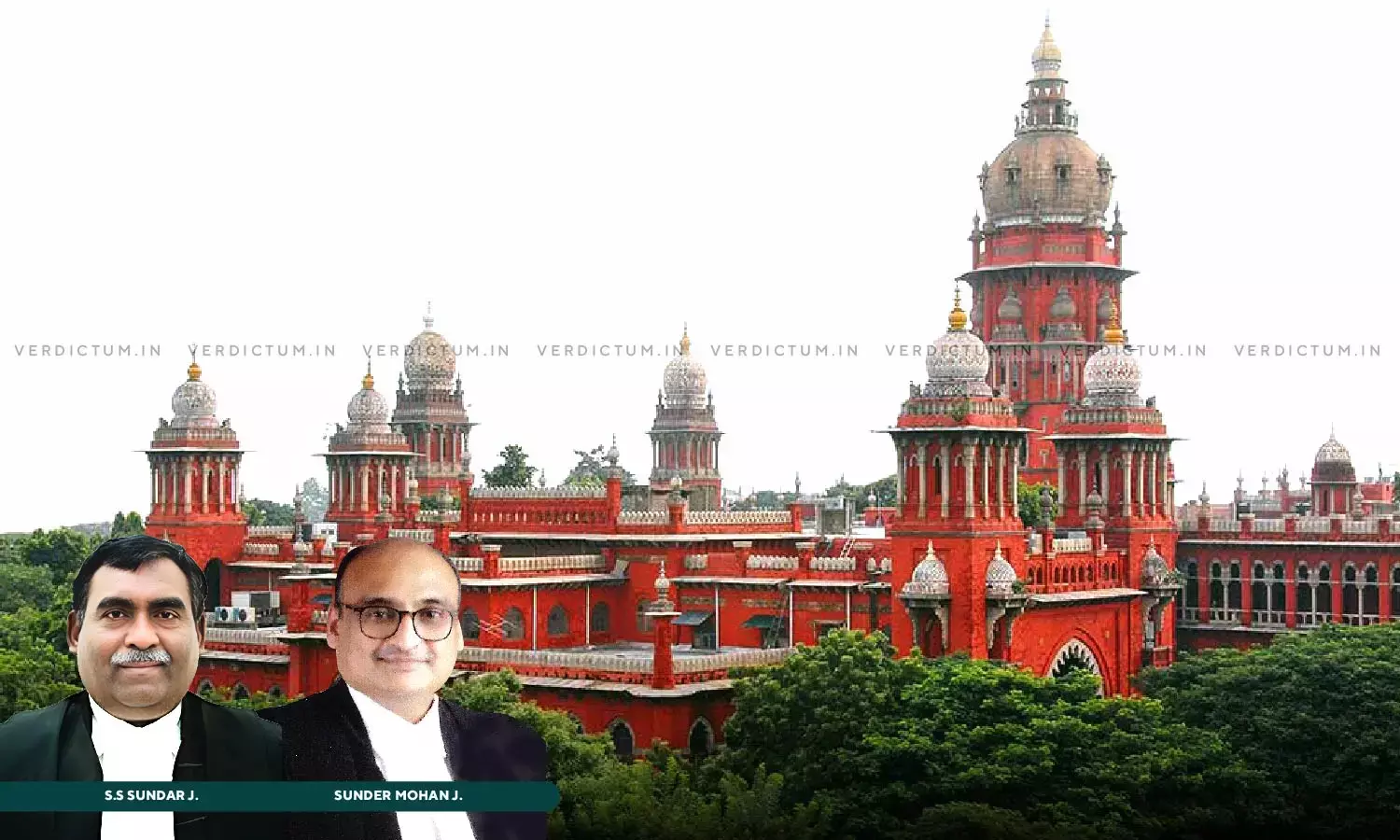Mere Threats Of Association With ISIS Terrorist Is Not An Offence Under UAPA: Madras High Court

The Madras High Court observed that merely because a person threatens another person stating that he was associated with an ISIS terrorist, then that threat would not amount to an offence under Section 39 of the Unlawful Activities (Prevention) Act, 1967.
The Cour said that a reasonable ground to hold that the person had supported a terrorist organization, and independent evidence would be required to establish support.
The Appellant is alleged of offences under Section 18 of UAPA for conspiring to commit a terrorist act, and also under Section 39 of UAPA for lending support to a terrorist organization.
Accordingly, a bench of Justice S.S. Sundar and Justice Sunder Mohan observed, “…There must be material to show that the appellant had intended to support a terrorist organisation or had conspired to commit a terrorist act in order to attract the offences under Sections 39 and 18 of the UA (P) Act, respectively. The allegation of conspiracy to commit a terrorist act must spell out the object of the conspiracy (i.e) as to what exactly was the terrorist act that was agreed to be committed. However, we may hasten to add that the above observations are made only for arriving at a prima facie satisfaction for the purpose of considering the bail application on the basis of the broad probabilities of the case”.
Advocate I. Abdul Basith appeared for the appellant and Senior Public Prosecutor R. Karthikeyan appeared for NIA.
The petition was filed challenging an order passed by the Sessions Court for Exclusive Trial of Bomb Blast Cases wherein holding that there were reasonable grounds to believe that the appellant had committed the offences, refused to grant bail.
The Government of India, in exercise of powers conferred under Section 6 (5) r/w Section 8 of the National Investigation Agency Act, 2008 (NIA Act), entrusted the investigation of the case to the respondent-NIA.
As per the averments made by the prosecution A1 (prime accused) and A3 (appellant herein) had been indulging in anti-national activities in the name of Khilafah Party of India, and Intellectual Students of India (ISI). It was also contended that A1 is a strong and a devote supporter of ISIS and that the Khilafah Party of India and Khilafah Front of India, are manifestations of Islamic State/ISIS/Daesh outfit and the appellant had connection with him since 2019. Further, the final report also stated that A1 to A3 had discussed about establishing Islamic rule in India, and knowing fully well that A1 had links with ISIS, A3 participated in conspiracy meetings conducted at Tamil Nadu Haj Services Society by A1 and others for discussing about ideologies of ISIS, and for promoting Khilafah Party of India, formed for waging war and overthrowing the Government lawfully established.
As per the statement that was relied upon by the Prosecution, the appellant allegedly threatened a witness that his leader A1 and his associate A2 (another accused) are ISIS terrorist and that he will be killed in the middle of the street. Another protected witness had allegedly disclosed that the appellant was a close confidant of A-1 and he used to deal with all the matters of A-1 including handling illegal funds.
The Court then noted, “…No doubt, the statement reveals the association of the appellant with A1. The requisite intention to support a terrorist organization cannot be inferred from the materials filed in support of the final report. The fact that the appellant handled the funds of A1 cannot be the basis to infer his support to any terrorist organization. Support to an individual is different from support to a terrorist organisation. Further, we find from the averments in the Final Report that the motto of the outfit said to have been formed by A1, namely the Khilafa Party of India, was to establish Islamic rule in India by overthrowing the Government established by law. This by itself would not amount to a terrorist act within the meaning of Section 15 of the UA (P) Act”.
Also, on the statutory limitation under the proviso to Section 43 – D (5) of the UAPA, the bench had also noted, “The liberty of a person cannot be denied on grave suspicion alone. The Act specifically employs the words “reasonable grounds for believing that the accusation against such a person is prima facie true”. Further, we are of the view that the accusation must be not only grave, but the materials in support of the accusation must be cogent at whatever stage the bail application is considered. Thus, there must be something more than grave suspicion while holding that there is a prima facie case to deny bail”.
Thus, the Court while noting that the restriction found in the proviso to 43 (5) of the UA(P) Act cannot be read to mean that the basic human right or the constitutional right of a person is taken away, and that the detention pending trial cannot be indefinite, granted bail to the accused.
Cause Title: Mohamed Irfan v. Union of India
Click here to read/download the Judgment

